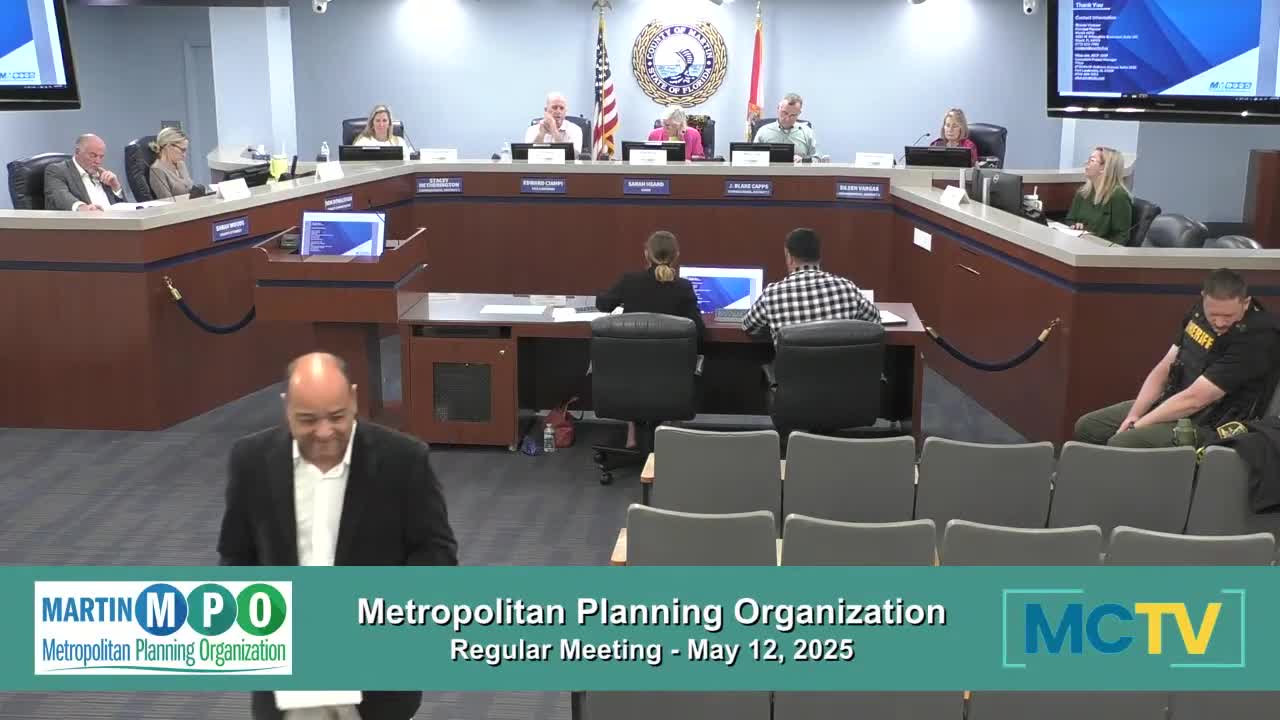Article not found
This article is no longer available. But don't worry—we've gathered other articles that discuss the same topic.
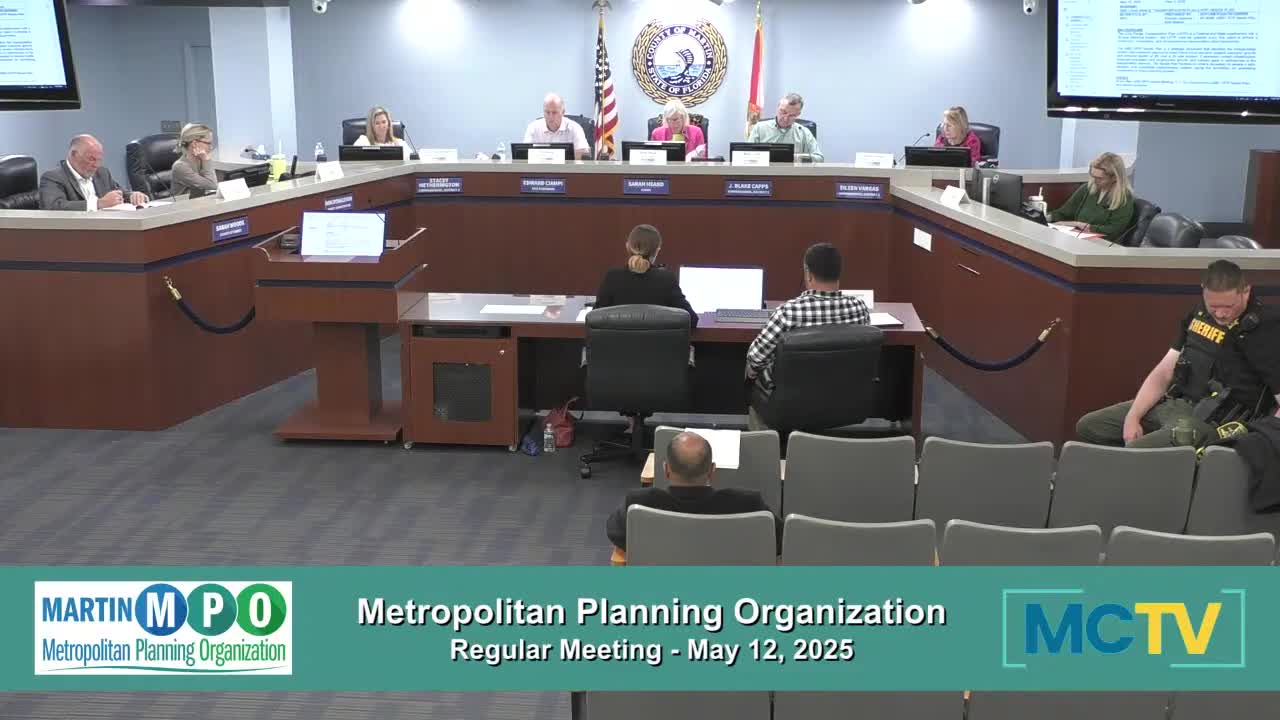
Martin MPO presents Martin Moves 2050 needs plan; model flags 29 overcapacity corridors by 2050
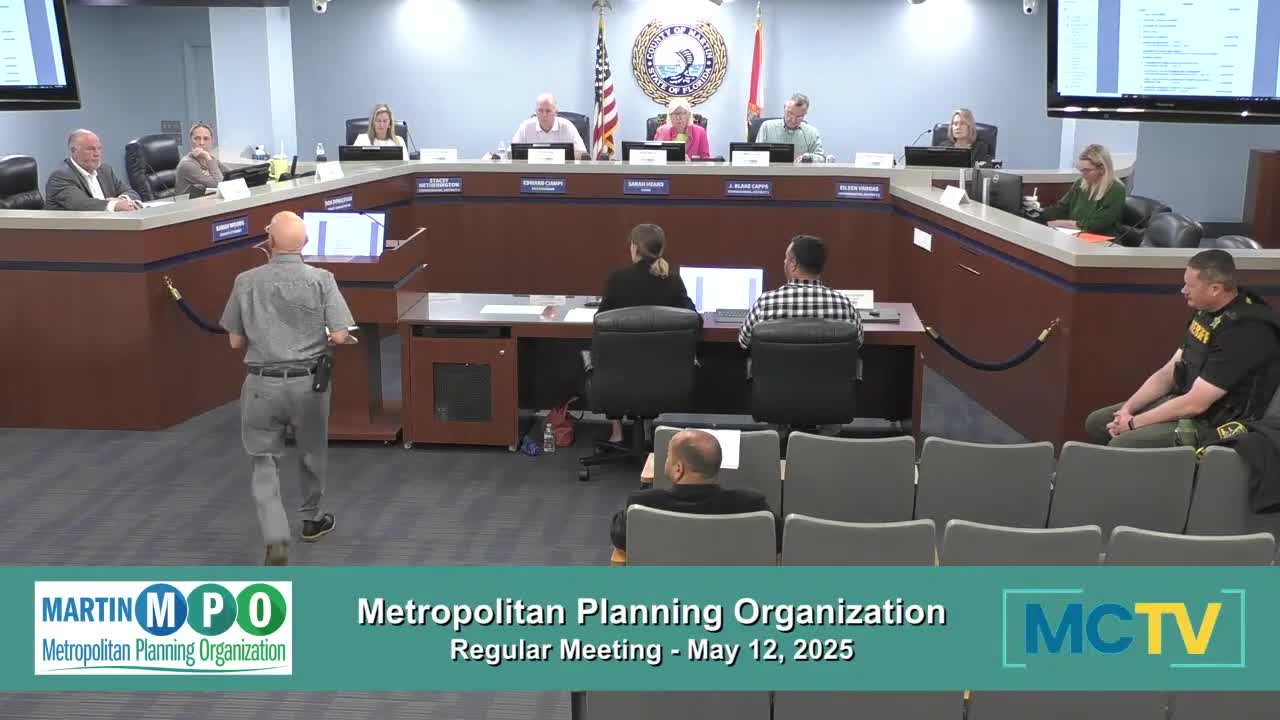
Residents tell Martin MPO they oppose Cove Road widening alternative
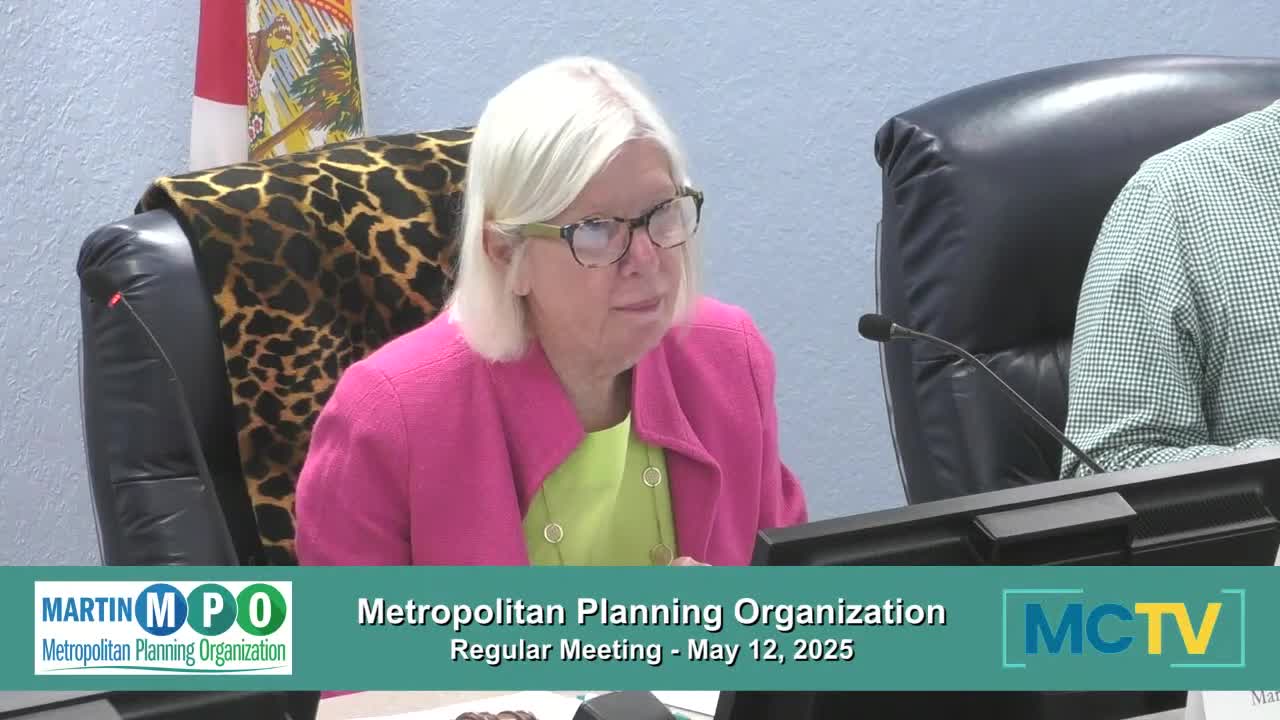
FDOT updates Martin MPO on SR 710; signal warrant at Allapattah due in June after board raises safety concerns
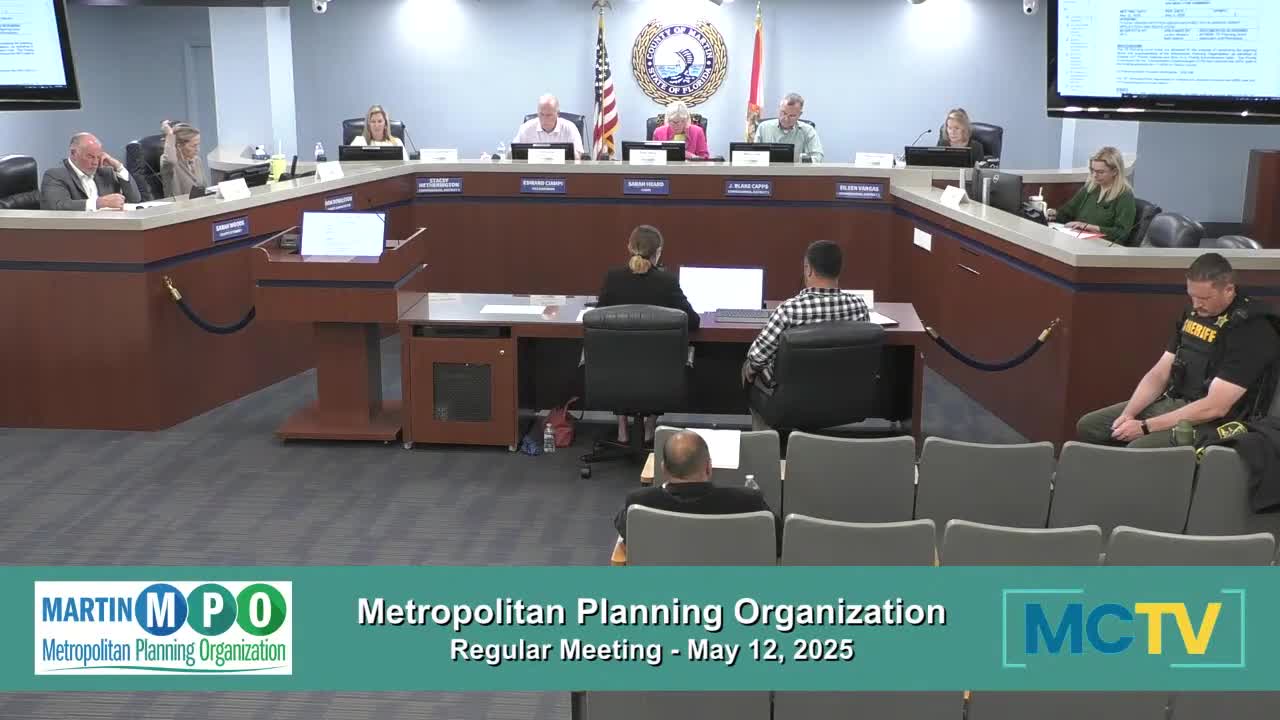
Martin MPO accepts $26,000 TD planning grant and recommends Senior Resource Association as CTC
